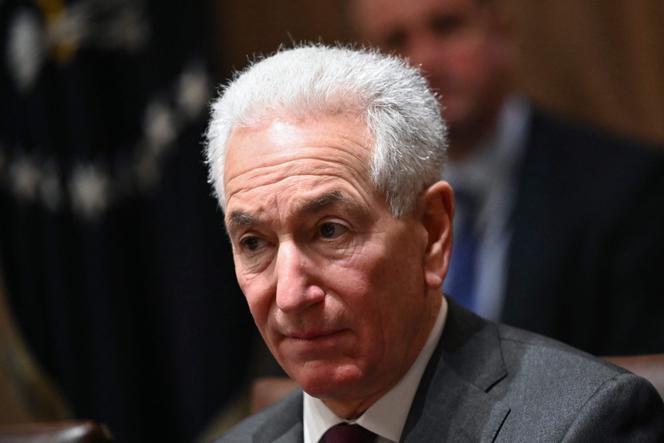


A diplomatic row between the United States and France escalated on Monday, August 25, when Washington decided to stand firmly behind its ambassador's criticism of the French response to a rising tide of antisemitism. US ambassador Charles Kushner, the father of President Donald Trump's son-in-law, was ordered to report to the French foreign ministry on Monday, and it was not immediately clear whether the meeting had taken place.
The row erupted amid concerns about an increase in antisemitic acts and hate crimes in France as international tensions mount over the conflict in Gaza. Kushner, in a public letter to French President Emmanuel Macron, has accused France of a "lack of sufficient action." France retorted that "the allegations from the ambassador are unacceptable" and the rift deepened on Monday when Kushner was summoned to the ministry and the Trump administration doubled down on his critique.
"We stand by his comments," State Department spokesman Tommy Pigott said. "Ambassador Kushner is our US government representative in France and is doing a great job advancing our national interests in that role."
In July, Macron said France would formally recognise a Palestinian state during a UN meeting in September, sparking irritation in Israel and the US. In a letter to Macron that was released to the new media at the weekend, Kushner alleged that such gestures "embolden extremists, fuel violence, and endanger Jewish life in France."
Kushner was confirmed as France's ambassador by the Senate in May. His remarks tally with those made by Israeli Prime Minister Benjamin Netanyahu, who has accused Macron of fomenting antisemitism.
France condemned the ambassador's report, but noted: "The rise in anti-Semitic acts in France since 7 October 2023 is a reality that we deplore and to which the French authorities are responding with total commitment, as these acts are completely unacceptable."
Members of France's Jewish community have said the number of antisemitic acts has surged following the attack by Hamas on Israel on October 7, 2023 which triggered Israel's military response.
Last week, a group of 150 young Israeli tourists was refused entry to a leisure park in the south of France. Prosecutors said they had placed the manager of the park under investigation on suspicion of discrimination based on ethnic origin or nationality.
In another incident this month, an olive tree planted in memory of a young Jewish man tortured to death in 2006 was felled outside Paris. The cutting down of the memorial tree stirred outrage in France, with Macron vowing punishment over an act of antisemitic "hatred."
Patrick Klugman, a lawyer for several French victims of the October 7 attacks, said antisemitism in France had reached historic levels but defended the government. "Over the past six years, no antisemitic murder has been committed in France, while sadly several have occurred in the United States," he said on X. "No country is in a position to lecture others, and all must revise their approach."
